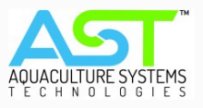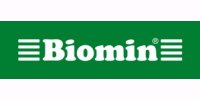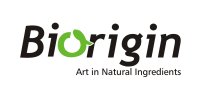Spotlight on Africa at World Aquaculture 2017

THE World Aquaculture Society takes its annual conference to Africa for the first time in 2017 – turning the spotlight on the potential of aquaculture production to support economic development and investment opportunities in the world’s second-fastest growing regional economy.
Aquaculture is increasingly important as an environmentally sustainable way to meet global demand for fisheries products, while Sub-Saharan Africa’s vast inland waters and coastlines – home to a small but rapidly growing aquaculture sector – present a largely untapped opportunity to contribute to the nutrition and socio-economic development needs of the region.
Themed “Sustainable Aquaculture – New Frontiers for Economic Growth – Spotlight on Africa”, World Aquaculture 2017 will bring together some 3,000 industry, academic and government delegates from the 100 member countries of the World Aquaculture Society (WAS), in Cape Town, South Africa, from 26-30 June 2017.
Representing the coming of age of African aquaculture and a significant milestone for the global aquaculture community, WAS will launch its Africa Chapter at the conference, where the continent will join the United States, Korea, Asia-Pacific and Latin-American-Caribbean as fully affiliated chapters of the WAS.
The conference will balance global and African perspectives, the theme captured in keynote addresses – “Feeding the Nine Billion: The Role of Aquaculture” by leading sustainable aquaculture advocate Dr Rohana Subasinghe, and “African Perspectives on Aquaculture” by Dr Sloans Chimatiro, Programme Manager: Fish Trade at the World Fish Centre, Zambia – setting the tone for the conference and highlighting the value of aquaculture in global food security.
Dr Subasinghe, who retired in 2015 as Chief of the Aquaculture Branch of the Food & Agriculture Organisation (FAO) of the United Nations, is a strong advocate for the contribution of aquaculture to poverty alleviation and food and nutrition security, and empowering the people involved in small-scale aquaculture value chains.
Conference co-chair and former WAS President, Dr Kevan Maine said Dr Subasinghe was ideally placed to lead off the conference discussions, especially given his role in spearheading development of the FAO’s Global Aquaculture Advancement Partnership (GAAP), which addresses the need for a concerted effort to ensure future aquaculture development will become increasingly socially acceptable, environmentally sustainable, and responsibly managed.
Dr Chimatiro has been instrumental in raising ‘the African voice’ in international fisheries and aquaculture forums, and building African research institutions and networks in support of fisheries and aquaculture development. He played a leading role in formulating fisheries and aquaculture policy and governance programmes for the African Union, including coordination of the development of the Comprehensive African Fisheries Reform Strategy (CAFRS).
Financing and investment in the aquaculture industry will be highlighted in the keynote address “The global seafood industry from a banker’s perspective” by Gorjan Nikolik, senior industry analyst for Food and Agri-business Research and Advisory at Rabobank International, the Netherlands-based cooperative bank.
Nikolik is a leading industry analyst, speaker and researcher focusing on the global seafood sector, including aquaculture, wild-catch, seafood trade and processing. In his primary role, he provides research and advisory on the sector to support Rabobank in areas such as mergers and acquisitions, leveraged finance, venture capital, and credit risk management.
Focusing on “farm to plate”, aquaculture development and commercialisation expert Prof Tom Hecht, a former board member of the WAS, will speak on “Establishing aquaculture value chains”.
Prof Hecht has played a lead role in the development of aquaculture in southern Africa with a career spanning research, policy, development and commercial involvement. He is an emeritus professor of Rhodes University where he played a lead role in establishing the Department of Ichthyology and Fisheries Science as a regional centre of excellence in aquaculture.
In addition to pioneering research on African catfish and abalone culture, he has made extensive contributions to African aquaculture development including small farmer development in Malawi, a landmark review of African aquaculture for the FAO, and the establishment of the Aquaculture Association of Southern Africa. His current work includes establishing a trout farm in the Lesotho Highlands and facilitating the formulation of a Marine Aquaculture Masterplan for the Seychelles.
World Aquaculture Society (WAS) President Juan Pablo Lazo said: “the time was right for the world aquaculture community to focus on Africa. Rapid urbanisation, economic growth and a rising consumer class will only increase demand for fish over the next two decades and aquaculture presents a solution for production of affordable, fresh fish for the region.”
“The opportunities for investment and technology development to realise the growth potential of marine and freshwater aquaculture in Africa make the continent the logical choice for World Aquaculture 2017.
WAS Conference Programme co-chair, Prof Peter Britz said: “The continent is seeing a boom in infrastructure and logistics development, there is a growing population to sustain consumer demand and support employment creation, and Africa is endowed with vast natural resources to support aquaculture,” he said.
He said that traditional small-subsistence aquaculture in Africa was rapidly transforming and becoming integrated into the continent’s food systems as African governments increasingly adopted policies to support commercial-scale production and encourage investment in the sector.
The conference caters to the broad range of interests in aquaculture, providing a learning, information-sharing and networking opportunity for entrepreneurs, business, scientists, technical specialists, educators, students, policy-makers and public officials.
The technical and scientific programme and diverse parallel sessions will be complemented by a major international trade show, while the AquaForum provides an opportunity for producers from around the world to share information on challenges, techniques and new developments.
Cape Town, recently voted one of the best cities in the world, and the Cape Town International Convention Centre provide an outstanding setting and venue for the first WAS meeting in Africa.
The conference is hosted by the Aquaculture Association of Southern Africa and the South African Department of Agriculture, Forestry and Fisheries.
Conference details:
Venue: Cape Town International Convention Centre, Cape Town, South Africa
Dates: 26 – 30 June, 2017
Registration: Register online at www.was.org. First deadline for discounted registration: 26 April, 2017.
Abstract submissions: Online at www.was.org, by February 1st, 2017.
Exhibition and trade show: Register online at www.was.org, or contact mario@marevent.com.
Issued by: World Aquacultuer 2017 Organising Committee
On behalf of the World Aquaculture Society
Media contact: Mario Stael mario@marevent.com .
Featured Store Items
- Aquaculture Africa 2024
- Aquaculture Businesses: A Practical Guide to Economics and Marketing
- Understanding Aquaculture
- Largemouth Bass Aquaculture
- Cleaner Fish Biology and Aquaculture Applications
- Sea Bass and Sea Bream A Practical Approach to Disease Control and Health Management
- Catfish Days - From Belzoni to the Big Apple













